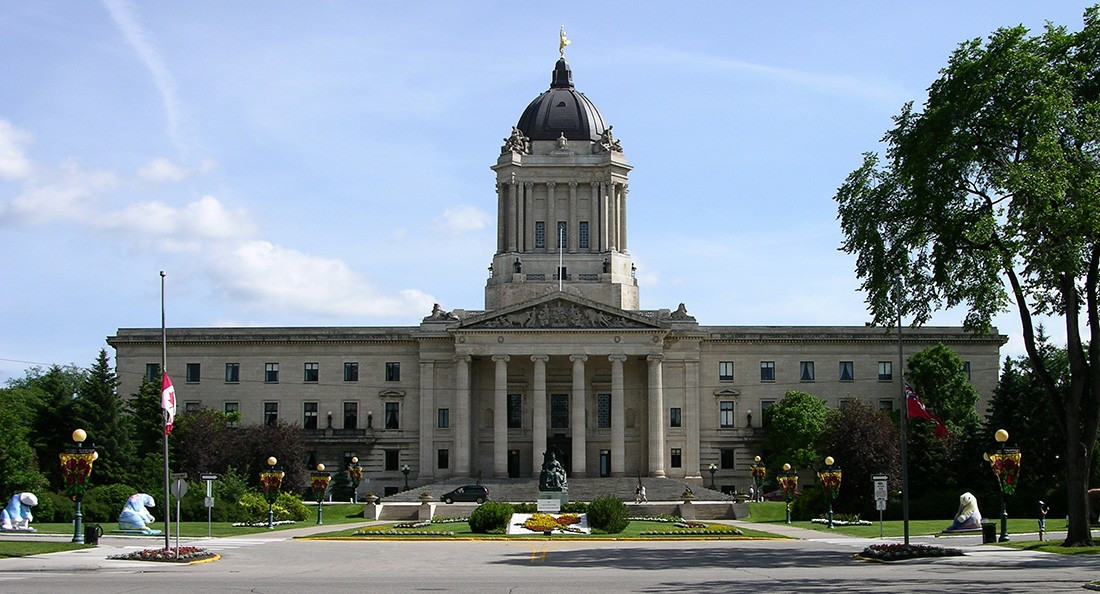Can’t miss a target that doesn’t exist
Elected officials shouldn’t give themselves pay raises while butchering budgets
Both the Winnipeg city council and the Manitoba provincial government announced budget cuts that will see 2017 public services scaled back, as well as hiring and wage freezes for those employed by both levels of government.
The Manitoba Progressive Conservatives (PCs) gave the Winnipeg Regional Health Authority a target of $83 million in cuts this year. The Northern Regional Health Authority will lose $6 million.
The PCs have also threatened to undermine collective bargaining by taking a legislative approach to reopening ratified contracts.
Crown corporations have not been spared. In early February, Premier Brian Pallister called for Manitoba Public Insurance and Manitoba Liquor & Lotteries to cut 15 per cent of their management teams “as a starting point” to find savings.
Manitoba Hydro has shifted to layoff mode under its new, PC-appointed board of directors. The crown utility seeks to eliminate 15 per cent of its workforce as well.
With all of this austerity set to face Manitoba for the four years ahead, surely the province’s PC leaders applied the same pennywise policy to their own pocketbooks, right?
On their first day of political power, the premier and his cabinet froze the minimum wage, while accepting 20 per cent salary increases for themselves.
In March, under the pressure of widespread criticism, PC leaders announced they would freeze their own salaries, but they contradicted this claim with the release of Bill 21.
According to Bill 21, the PCs’ balanced budget bill, ministers would not receive raises if budget targets weren’t met. However, the bill does not include any timeline, which means there is no actual target.
At Winnipeg city hall, heavy snowfall has been cited as the cause of a $9.5-million deficit, and that deficit as justification for a hiring freeze that will apply to most departments.
Compared to a city-wide wage and hiring freeze, Mayor Brian Bowman accepted a 1.23 per cent wage increase for 2017 on top of a 2.38 per cent increase last year.
Critics with dissimilar political motivations share common ground condemning the practice.
In the Winnipeg Free Press, Manitoba Federation of Labour president Kevin Rebeck questioned the genuineness of the premier’s assertion that the cuts were “all hands on deck,” while the premier and his cabinet received raises.
Canadian Taxpayers Federation prairie director Todd MacKay called the Manitoba PCs “hypocritical.”
“If they’re asking their employees to do the sensible thing and hold the line on salaries, they have to lead by example,” he told Winnipeg Metro.
Wage increases for a few at the top is a small portion of the much larger budget, but this view misses the principle of the issue.
When leaders avoid downsizing while slashing services, it shows poor leadership and is part of a broader economic system that extends existing wealth inequality.
Self-administered pay raises for the ruling classes during times of austerity may not sit well with those who pay the price, including those who provide and require public services.
Politicians who raise their own pay while administering cuts elsewhere create the perception that politicians view themselves as more valuable than those who provide and require public services. This contributes to the stereotype that politicians see only numbers on a spreadsheet and not the people they represent.
Sam Swanson is the incoming comments editor for volume 72 of The Uniter.
Published in Volume 71, Number 25 of The Uniter (March 23, 2017)







